Special feature of 1905 film network According to statistics, every three seconds, there will be another patient with Alzheimer’s disease in the world. For a long time, filmmakers have been thinking about how to tell the story of Alzheimer’s disease from different perspectives. On the eve of Mother’s Day, a Japanese film released on May 12th showed this theme again, telling how a son who lacks maternal love can understand his mother’s story by witnessing half of the fireworks. After the film was released, there was a polarization of word of mouth. Some viewers thought it was mysterious, slow-paced, far-fetched to go to the meeting, and the editing was sparse. Another part of the audience thinks that sincerity is delicate and has great stamina.
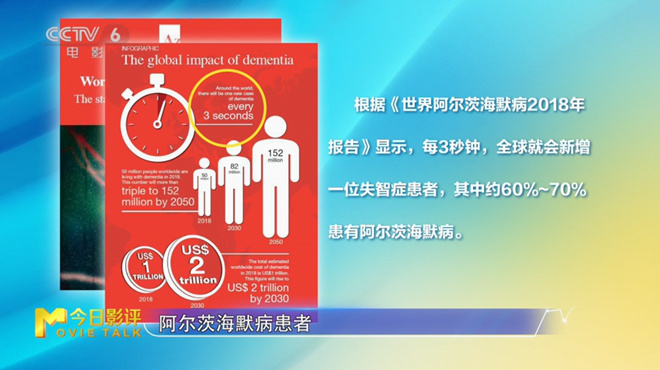
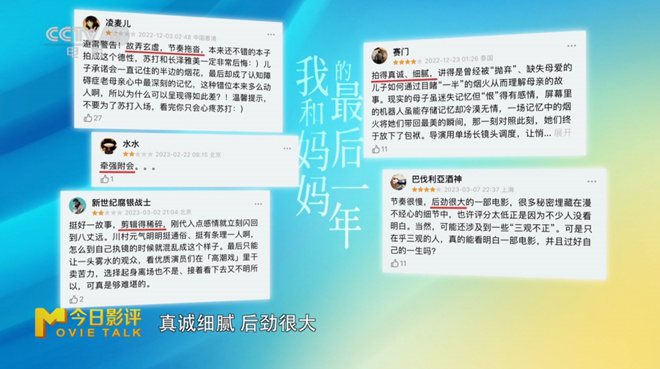
Lu Jianing, an associate professor at China Communication University, said: "These two views are reasonable. In a few words, it is very personal and tells a case-by-case emotion; The second word to describe the film is dislocation. The child was abandoned by his mother for a year, and his mother went to a new relationship willfully. The child is always fighting for love with a remembered mother lover. Under this mode, he often makes a cold attitude towards his sick mother. The film makes the trauma particularly serious. Although Alzheimer’s disease runs through, it has become an opportunity to heal the trauma, which is very different from our understanding of the disease. Its privateness makes the film very delicate, and dislocation will make people feel that it is difficult to identify with many times. "
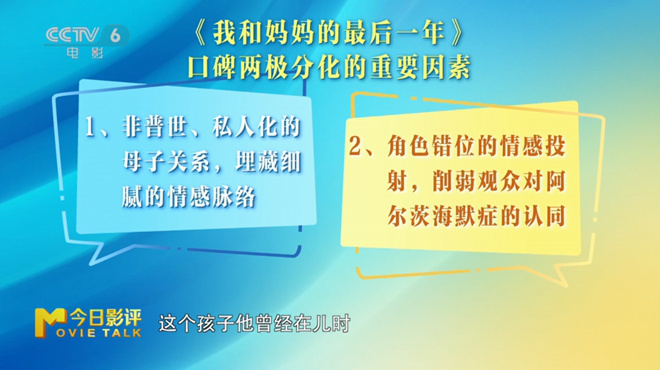
The film will cause such controversy, which is also related to the cultural differences between China and Japan. "My Last Year with Mom" is full of the aesthetic of mourning for things with Japanese characteristics. When touching external things, I feel deeply touched by the scene and naturally reveal deep and quiet feelings. The hero has always been very resistant to his mother’s pursuit of half a firework, thinking that this is because she is missing her past lover. At the beginning, it was for this lover that her mother abandoned herself for a year. But it wasn’t until he witnessed it that he found out that what his mother had been thinking about was the half fireworks she saw through the opposite tall building in her hometown. When Alzheimer’s Harmo’s disease erodes the mother’s brain, but it doesn’t take away her love for herself, the most precious memory in her heart is still the happy time when she accompanied her son to grow up.
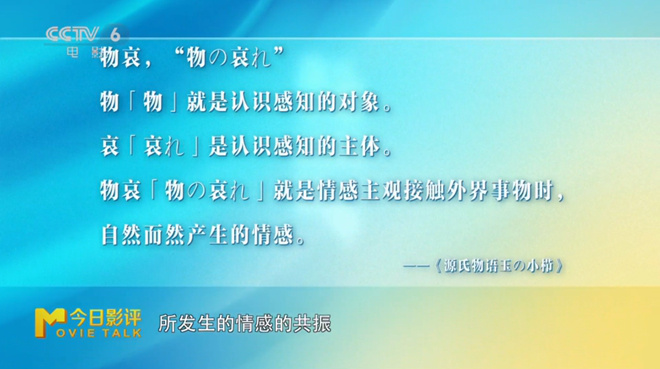
It is also witnessing the half fireworks with my own eyes, and the memories of living with my mother are pouring in. At that moment, the fleeting beauty in the sky seems eternal. The film uses extremely delicate techniques to let the audience and the hero experience the beauty of this moment. The fireworks are bright and dark in mid-air, and the inanimate objects resonate with people’s strong emotions, which lights up the constant love between mother and son, and also makes the audience understand this affection that blood is thicker than water. As the theme of the film, the creative team did not highlight the suffering of Alzheimer’s disease, but turned it into a key to lead the mother and son to untie the knot.


Nowadays, more and more film creators in various countries pay attention to Alzheimer’s disease, which leads to the birth of countless excellent films. However, different educational and cultural differences in different countries make this theme have completely different interpretations, reflecting different lives of people in different countries. Japanese people tend to film Alzheimer’s disease as a cure film, which weakens the pain caused by the disease to patients and their families, and pays attention to how patients can change their relationship with others through Alzheimer’s disease. For example, in his works, relevant plots have been set, and the characters who were not liked originally changed their personalities after suffering from Alzheimer’s disease, thus repairing the relationship with family and friends. It can be said that such a description will definitely make people feel cured, but it has become an understatement for this disease, lacking profundity and thinking.
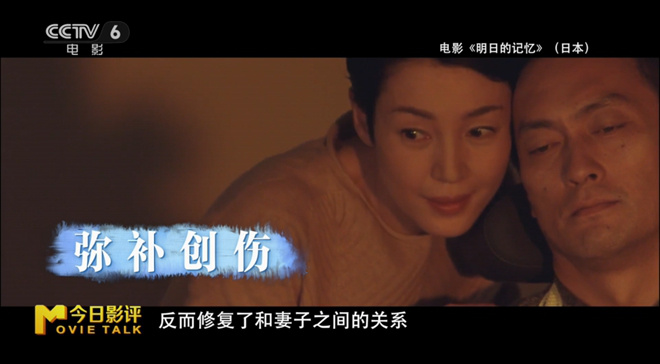
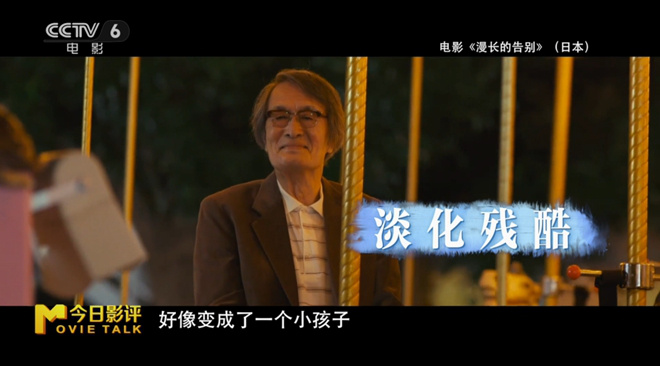
Different values present different perspectives, and in European and American films, such as, etc., they are strongly individualistic. In the eyes of western filmmakers, people are lonely individuals. After suffering from Alzheimer’s disease, patients not only lose their memory, but also look at the world in a chaotic way. Even with the meticulous care of their families, it is difficult to enter the inner world of patients. In the context of many western films, move on is emphasized. No matter what happens, people should go on strongly. However, patients with Alzheimer’s disease have lost this strong heart to go on. They are lonely and no longer sure who they are, so their films often make patients full of tragedy. The Father even cried directly to find his mother who died many years ago, which makes people moved.
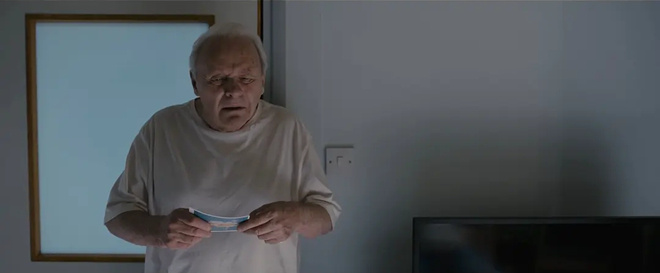
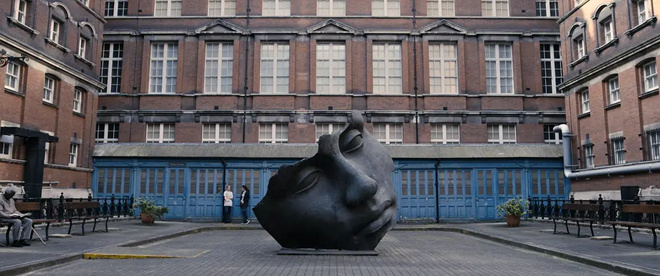
Influenced by Confucian culture, ethical concepts and realistic aesthetics, China’s creators pay more attention to the blood ties between family idioms when creating related themes, which leads to a more grand view of history and society. Dislocation in the end, let the mother who should have been taken care of heal her daughter with Alzheimer’s disease, no matter how her age changes, maternal love can still make her strong; In the middle school, my son was afraid that his mother with Alzheimer’s disease would get lost, so he connected himself with his mother with a rope, just like an umbilical cord, and took her back to the Mongolian steppe to find her roots. These excellent works reflect the greatest values of China’s family, and also reflect a wider and deeper space on this theme, and express the thoughts of China filmmakers with movies.
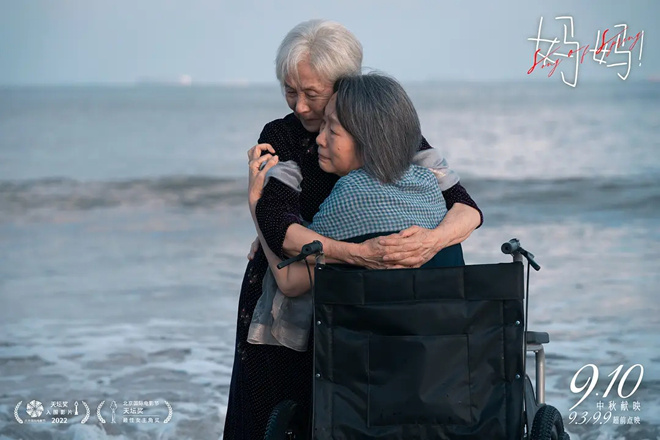
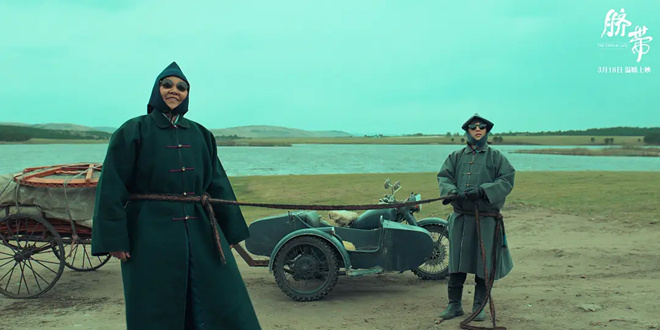
Sickness itself is a tragedy, but many people and families presented in the film actually gained another affection in this tragedy and made up for some regret. There is a line saying that life is different from movies, and life is much harder. I hope movies, light and shadow can give you more strength to face this challenge in life together.